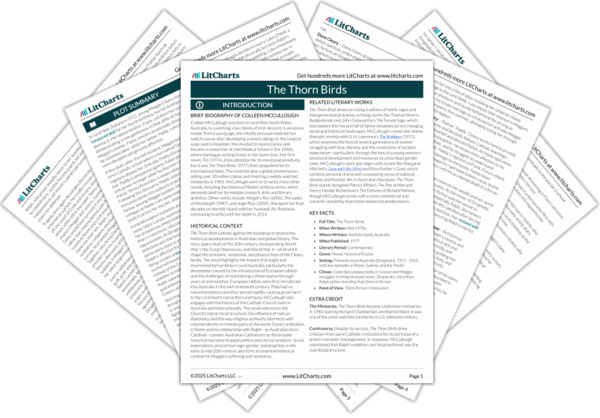Ralph’s awareness of his feelings becomes impossible to ignore. What began as affection has grown into something more intense and romantic—and inappropriate. Meggie is no longer a child, and his protectiveness has become tangled with a need for connection that he cannot fully justify. His growing discomfort exposes a conflict between his religious duty and his desire to remain close to her. At this point, Ralph cannot deny his attraction to Meggie, but he also cannot escape the sense that it threatens both of them. His priestly role should offer distance and clarity, but instead, it has become a mask he hides behind.
